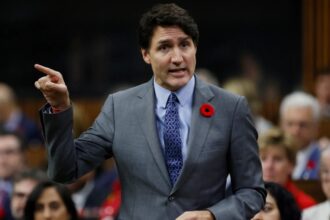
Millions cast their votes in an election poised to reshape the country’s future. The contest pitted former President Donald Trump against vice president Kamala Harris, who could make history as the nation’s first female president.
With polls closing in pivotal battleground states like Georgia, this high-stakes race witnessed a flood of voter turnout as the nation chose between two vastly different visions and temperaments for leadership.
Throughout Election Day, Americans continued to line up to vote, adding to the staggering 84 million early ballots already cast. This year’s election sees the economy, immigration, and the very foundation of democracy as top issues driving voters to the polls. Trump and Harris each secured early wins in traditionally safe states for their parties.
Trump wins Indiana, Kentucky
Trump, buoyed by strong support in the South and Midwest, won Indiana and Kentucky, adding 19 electoral votes to his tally. Harris clinched Vermont, a Democratic stronghold that has supported the party in eight consecutive presidential elections.
Republican Jim Banks, a strong Trump ally, won Indiana’s open US Senate seat over Democratic newcomer Valerie McCray. Banks’ win reinforces Indiana’s conservative streak, especially since the state has overwhelmingly supported Trump in past elections.
In Kentucky, Trump celebrated another victory, marking his third consecutive win in the state since 2016. His connection to the state dates back to his administration, where he collaborated with local leaders to push through major tax cuts and appoint three conservative Supreme Court justices, solidifying his popularity among Kentucky’s Republican base.
Harris claims victory on Vermont
Harris claimed victory in Vermont, underscoring her support in progressive regions. Vermont’s Governor Phil Scott, a moderate Republican critical of Trump, had previously voiced support for Democratic leaders, even voting for Joe Biden in 2020. Vermont’s alignment with Harris reflects a broader ideological divide between regions supporting different approaches to pressing issues like economic recovery, social policy, and foreign relations.
As polling stations closed in six states, including the battleground of Georgia, the stage was set for a nail-biting night. For many Americans, the election’s outcome symbolizes a decision not only about policies but about the direction of democracy itself.








